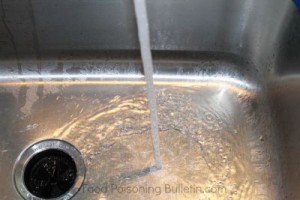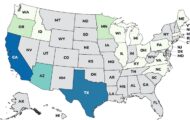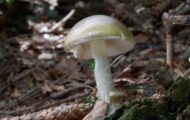Last Wednesday, the Louisiana Department of Health and Hospitals found the amoeba Naegleria fowleri in St. Bernard Parish water system at a leaking sampling station. This system provides water for 44,000 residents in that parish. Louisiana has a new public drinking water surveillance program and this testing is part of that program.
On July 28, 2015, the DHH issued another report stating that the Naegleria fowler amoeba was found in the Ascension Consolidated Utility District 1, which serves 1,800 residents in a small community north of Donaldsonville. A 60-day chlorine burn will be conducted at that site as well. That water system was not in compliance with the requirements for chloramine disinfectant levels. Tap water is safe for residents to drink, but, do not let the water get in your nose.
 The DHH has told the parish to conduct a 60–day chlorine burn to kill any remaining amoeba in the system. The water system has met requirements for collarbone disinfectant levels. Five other sites on that system tested negative for the amoeba.
The DHH has told the parish to conduct a 60–day chlorine burn to kill any remaining amoeba in the system. The water system has met requirements for collarbone disinfectant levels. Five other sites on that system tested negative for the amoeba.
Officials say that the tap water in St. Bernard Parish is safe for people to drink, but the Department “urges residents to avoid getting water in their noses.” These infections are very rare, but testing for this amoeba in public drinking water is new. there have been three deaths in Louisiana caused by this amoeba over the last few years.
The amoeba causes an illness called primary amebic meningoencephalitis (PAM), which is an infection that destroys brain tissue. The early stages of the illness are similar to bacterial meningitis.
The CDC has issued precautions to reduce the risk of this infection. Residents should use these precautions until testing no longer finds the amoeba in the water system.
Focus on limiting water that goes up your nose. Do not allow water to go up your nose or sniff water into your nose when bathing, showering, washing your face, or swimming in small pools. Do not jump into or put your head under bathing water in bathtubs and small plastic or blow-up pools. Do not let children play unsupervised with hoses or sprinklers and avoid slip-n-slides and other activities where water may go up the nose. Keep small plastic and blow up pools clean by emptying them, scrubbing them, and letting them dry after each use. Keep your swimming pool adequately disinfected by making sure free chlorine is at 1 to 3 ppm and a pH of 7.2 to 7.8. Hot tubs should have a free chlorine level of 2 to 4 pop and pH 7.2 to 7.8.
Run the water for baths and showers, and hoses, for five minutes before use to flush out the pipes. This is crucial the first time you use the tap water after the utility increases the disinfectant level. Only use boiled and cooled, distilled, or sterile water for neti pots.




